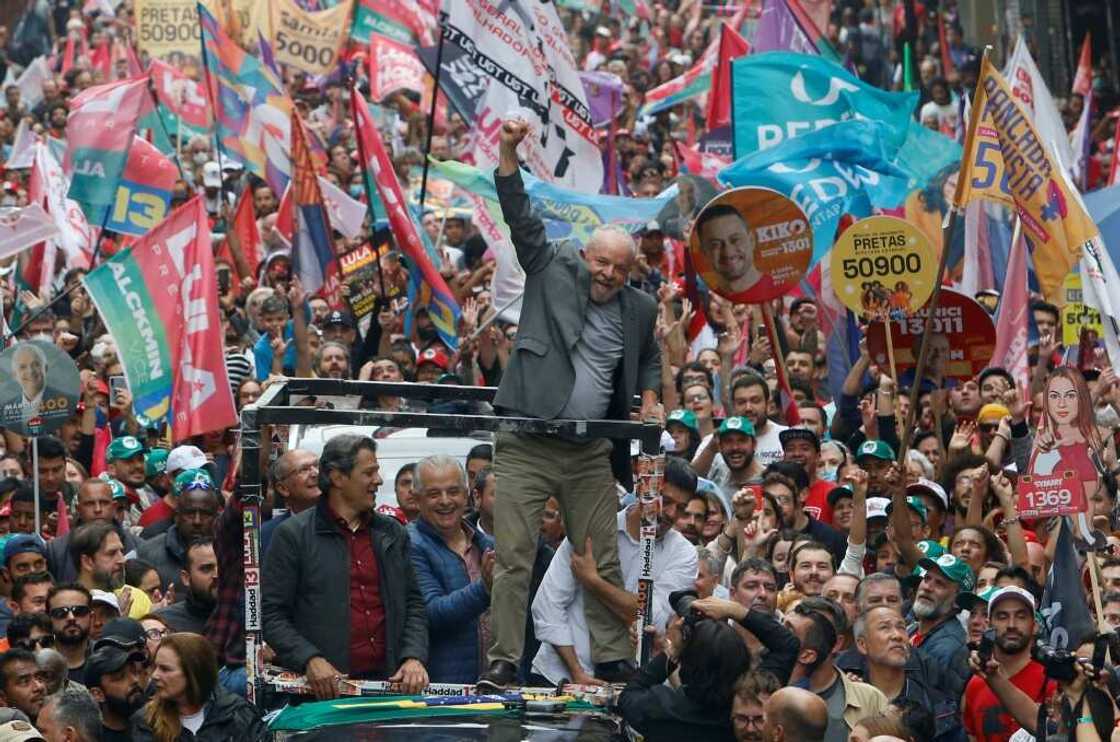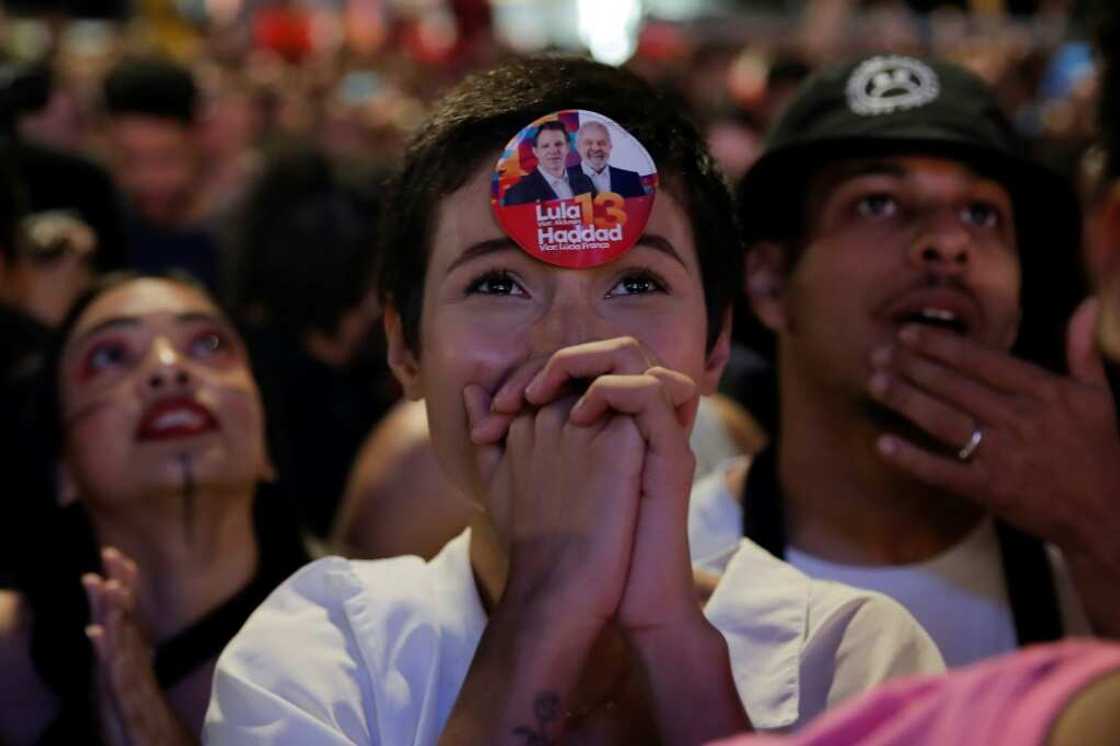Lula must fight for center to win Brazil runoff: analysts

Source: AFP
To prevail in Brazil's tighter-than-expected presidential runoff, leftist veteran Luiz Inacio Lula da Silva will have to strike alliances with centrists, woo the business sector and offer voters more than just his legacy, analysts say.
The long-time front-runner may have won Sunday's first-round vote against far-right incumbent Jair Bolsonaro, but the latter appears to have the momentum, having shattered pollsters' forecasts of a rout to finish within five points of Lula (48 percent to 43) and force a second round on October 30.
If Lula, the charismatic but tarnished ex-president who led Brazil from 2003 to 2010, is to stymy Bolsonaro, analysts say, he will have to redouble his efforts to win back the political middle, still disillusioned over the devastating corruption charges -- since annulled -- that controversially sent him to jail in 2018.

Source: AFP
The 76-year-old Workers' Party (PT) founder acknowledged as much himself after Sunday's disappointing results.
PAY ATTENTION: Subscribe to Digital Talk newsletter to receive must-know business stories and succeed BIG!
"We'll have to spend less time preaching to the choir and more time talking to voters... those who appear not to like us," he said Monday after meeting his campaign team to chart their strategy for the final stretch.
"Little peace-and-love Lula is ready to talk to everyone."
Deal-making time
Known as a deft politician, Lula will need to tap that acumen to strike alliances.
"He will have to make some gestures and concessions" to the center-left and center-right, whose votes Bolsonaro will also be after, said political analyst Leandro Gabiati, head of consulting firm Dominium.

Source: AFP
Lula already made a giant nod to centrists by picking center-right heavyweight Geraldo Alckmin -- the candidate he beat in the 2006 presidential race -- as his running mate.
Now he needs to chase the votes that went to Sunday's third- and fourth-place finishers, center-right candidate Simone Tebet (four percent) and center-left candidate Ciro Gomes (three percent).
Lula got a clutch endorsement Tuesday from Gomes's Democratic Labor Party (PDT) -- despite a long history of animosity between him and one-time ally Gomes.
Getting the backing of center-right Senator Tebet, an anti-abortion Catholic, could be key to luring socially conservative women voters.
She has hinted she is ready to back Lula. But it will be another matter winning over her party, the Brazilian Democratic Movement (MDB), which has a strong pro-Bolsonaro wing.
"Make your decision soon. Mine is already made," Tebet told the divided party's leadership.
Big spending shelved
Lula will also have to sell the business sector on his plans for Latin America's biggest economy.

Source: AFP
He presided over a watershed economic boom in the 2000s, blending market-friendly policy with ambitious social programs.
But Bolsonaro has more backing from the market this time around -- as seen when stocks surged Monday on his better-than-expected showing.
Lula will have to stay "malleable" on economic policy to woo the business sector, said Arthur Ituassu, professor of political communication at Pontifical Catholic University in Rio de Janeiro.
The former president will likely have to renegotiate his plans to expand social spending and overhaul the tax system, Ituassu said.
"That's going to be fundamental," he said. "That's how he wins the volatile center."
Back to the future?
Lula, who left office basking in a record 87-percent approval rating, also must stop leaning so heavily on his legacy and offer voters concrete, forward-looking policy plans, analysts say.

Source: AFP
"He's only talked about his achievements from his past administrations," said Paulo Calmon, a political scientist at the University of Brasilia.
"He needs to present plans for the future."
If that weren't enough, the former president also will have to perform one final feat of political gymnastics: execute all the above without losing the 57 million votes he won Sunday.
"A lot of voters who aren't necessarily on the left voted for Lula out of anti-Bolsonaro sentiment," said Dominium's Gabiati.
"But if Bolsonaro improves his message, he might reverse that rejection... and win that vote."
Source: AFP




